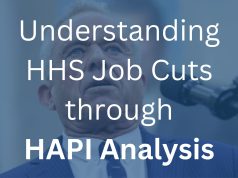Decoding Career Growth: First Principles Breakdown for HR Leaders
In the dynamic world of Human Resources, the pursuit of professional growth can often feel like navigating through a labyrinth. However, by employing a strategy rooted in First Principles Breakdown, HR leaders can deconstruct the complexities of their career advancement into manageable and actionable steps. This thought leadership approach provides a roadmap for tackling professional development with clarity and precision, much like a scientist tackles a hypothesis.
What is First Principles Thinking?
First Principles Thinking is a problem-solving framework that deconstructs complex issues into their foundational elements. By examining each component at its most basic level, HR professionals can sidestep conventional thinking patterns and uncover innovative solutions for career development. This approach is analogous to stripping down a process to its raw form and reconstructing it with newfound insights.
The Application of First Principles in Career Development
Applying First Principles to career development entails a methodical breakdown of ones professional aspirations and the obstacles that impede progress. Heres a step-by-step guide for HR professionals:
1. Define Your Career Objectives
Begin with a clear articulation of what you wish to achieve in your HR career. Whether it’s climbing the corporate ladder, transitioning into a specialized role, or becoming an industry thought leader, defining your end goal is crucial. This foundational step provides the direction for subsequent analysis.
2. Deconstruct the Barriers
Identify the barriers that are currently hindering your progress. This could range from skill gaps and networking challenges to organizational limitations or market dynamics. Break down these barriers into their core components to better understand what needs to change.
3. Reconstruct with Innovative Solutions
With a detailed understanding of the obstacles, begin reconstructing your career path using creative, solution-oriented strategies. This could involve acquiring new skills, seeking mentorship, building strategic networks, or even pivoting to areas where your unique strengths are better leveraged. The key is to challenge assumptions and cultivate a mindset of continuous learning and adaptation.
The Role of HR in Facilitating Career Development
As HR leaders, it’s important to not only focus on your own career progression but also to facilitate similar growth for others within your organization. Encourage a culture that embraces First Principles Thinking by:
- Promoting Learning Opportunities: Foster an environment of lifelong learning through workshops, online courses, and training sessions that align with both personal and organizational goals.
- Encouraging Open Dialogue: Create platforms for employees to voice their career aspirations and challenges. This openness can lead to personalized development plans that address individual needs.
- Supporting Innovative Practices: Encourage HR teams to adopt problem-solving frameworks that empower employees to think creatively about their career paths.
- Recognizing and Rewarding Growth: Acknowledge efforts and achievements in career development, thus motivating others to strive for continuous improvement.
Conclusion
By adopting First Principles Thinking, HR professionals can transform the often daunting journey of career development into a structured and insightful endeavor. This approach not only enhances personal growth but also contributes to building a resilient and innovative HR community. As leaders in Human Resources, the ability to dissect and reassemble our career aspirations with precision sets a precedent for thriving in an ever-evolving industry.




























